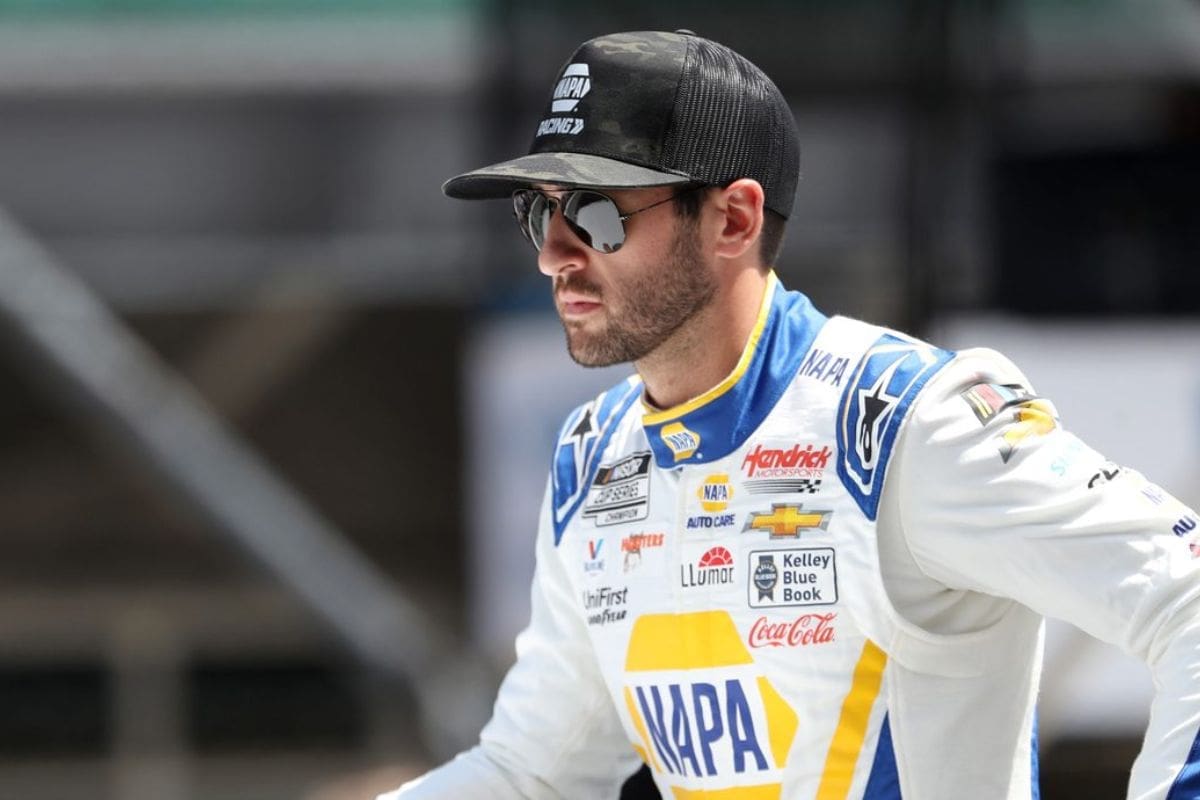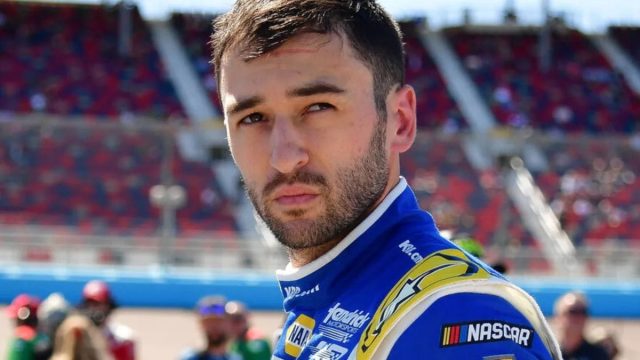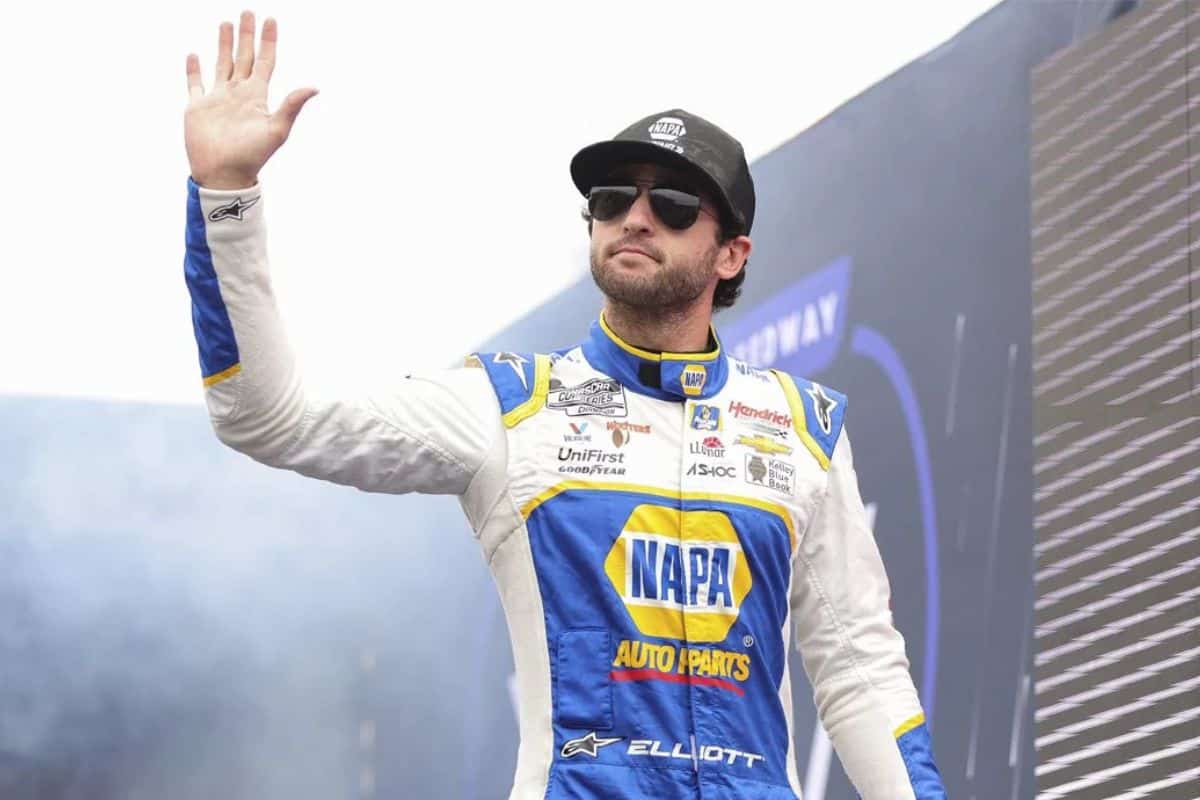Chase Elliott’s Electric NASCAR Comments: Chase Elliott, a respected figure in the NASCAR realm, recently expressed his careful yet hopeful position on the possible incorporation of electric vehicles in the sport. Elliott’s observations navigate the delicate equilibrium between upholding NASCAR’s storied cultural legacy and embracing state-of-the-art technological progress.
As he highlights the importance of upholding competitive equality and improving fan engagement, Elliott’s reflective thoughts provide a detailed view of the future terrain of NASCAR. What are the particular elements that Elliott thinks could either drive or impede the transition toward electric NASCAR?
Key Highlights
- Chase Elliott acknowledges the complexity and potential impact of shifting to electric vehicles in NASCAR.
- He expresses cautious optimism, reflecting a strategic approach to EV integration in the sport.
- Elliott emphasizes the importance of balancing technological advancements with cultural preservation in NASCAR.
- He highlights ongoing discussions within NASCAR regarding the feasibility and challenges of integrating electric vehicles.
- Elliott champions new technologies to attract younger fans while maintaining the core audience and improving driver safety.
NASCAR’s Exploration of Electric Vehicles
As NASCAR navigates the changing landscape of motorsports, the organization is actively exploring the integration of electric vehicles to align with future technological advancements and environmental sustainability. This exploration is highlighted by the introduction of the Next Gen Cup Series platform in 2021, which serves as a technological stepping stone towards potential electrification. The Next Gen cars have already shown significant advancements in aerodynamics, safety, and performance, making them a suitable precursor to an electric future.
The increase in production and popularity of electric vehicles (EVs) cannot be overlooked. Leading automobile manufacturers are increasingly focusing on EV technology, driven by consumer demand and regulatory demands for reduced emissions. NASCAR, a sport deeply rooted in internal combustion engines, faces a crucial moment where it must balance its storied traditions with the imperatives of modern technology and environmental stewardship.
Speculation within the motorsports community suggests that NASCAR’s shift towards electrification could bring about a profound transformation, not just in vehicle design but in the very nature of racing itself. The potential introduction of electric race cars raises questions about the sport’s iconic sound, the logistics of charging infrastructure, and the overall fan experience. However, it also opens exciting opportunities for innovation, with electric powertrains offering instant torque and potentially more strategic racing dynamics.
For fans and stakeholders alike, NASCAR’s exploration of electric vehicles represents a forward-thinking approach that could redefine the sport. By embracing electrification, NASCAR addresses environmental concerns and positions itself at the forefront of automotive innovation, ensuring its relevance and competitiveness in the rapidly changing world of motorsports.
Chase Elliott’s Perspective on NASCAR’s Future
Chase Elliott, a key figure at Hendrick Motorsports and a former NASCAR Cup Series champion, offers a unique and informed viewpoint on how NASCAR’s embrace of new technologies, like the Next Gen cars, is molding the sport’s future. Elliott views the shift to the Next Gen car as one of the most significant changes in NASCAR’s rich history, highlighting the sport’s forward-thinking approach to innovation.
Elliott’s analysis explores deeply the implications of these advancements, especially their potential to attract a new generation of fans while maintaining the core audience. He believes that embracing state-of-the-art technologies can update the sport, making it more appealing to younger demographics who are technology-savvy and environmentally aware. This balance between tradition and innovation is essential for NASCAR’s sustained relevance in a continually developing sports landscape.
Furthermore, Elliott stresses the significance of the Next Gen car’s design, which incorporates advanced aerodynamics and safety features. These enhancements not only aim to improve the racing experience but also prioritize driver safety, a vital aspect in a high-speed, high-risk sport. Elliott’s insights indicate that these technological advancements could result in a more competitive and exhilarating on-track product, potentially boosting viewership and fan engagement.
“Since I’ve been here, it’s been the transition to the Next Gen car, for sure. I mean, and honestly, I’m not sure there’s ever been a change that is quite that large or a change that has been that much of a departure from a previous generation vehicle.” – Elliott
As a competitor who has witnessed the sport’s evolution firsthand, Elliott’s viewpoint is invaluable. His comments mirror a profound grasp of NASCAR’s legacy and a forward-thinking perspective for its future. By championing these advancements, Elliott is not only advocating for the sport’s growth but also positioning himself as a central voice in shaping NASCAR’s path.
Elliott’s Views on Electric Vehicles
Elliott expressed a careful yet receptive stance on the topic of electric cars, acknowledging the complexity and potential impact of such a shift on NASCAR’s future. He highlighted the ongoing discussions within the sport regarding the feasibility and implications of integrating electric vehicles (EVs) into the racing scene. Elliott’s viewpoint emphasizes a recognition of the dynamic changes that could redefine the sport’s landscape, balancing tradition with innovation.
In his remarks, Elliott detailed the multifaceted considerations that accompany the potential shift to EVs. He noted the importance of evaluating how electric technology aligns with NASCAR’s core principles, including the fan experience, competitive fairness, and the preservation of the sport’s distinctive auditory and sensory aspects. His perspective reveals an awareness that the move toward EVs involves not just technological adjustments, but also a cultural shift within the sport’s passionate community.
“I’m not sure where they want to go. Obviously, there’s a lot of talk of what the electric side of the world is going to bring. That’s the most popular question, right?” – Elliott
@chaseelliott talks about what he thinks might be the future of @NASCAR. pic.twitter.com/Wc3VJJoJfs
— Kyle Dalton (@kdsportswriter) July 2, 2024
Elliott’s cautious optimism reflects an understanding that while the discussion around EVs is intensifying, the path forward is filled with uncertainties. He acknowledged that NASCAR is actively exploring different possibilities, ensuring that any decisions made will be in the best interest of the sport’s legacy and future growth.

NASCAR’s Openness to Technological Advancements
In embracing technological advancements, NASCAR demonstrates a forward-thinking approach that positions the sport at the forefront of innovation while maintaining its competitive edge. This progressive mindset is evidenced by the league’s proactive stance in exploring and integrating new technologies, an approach that Chase Elliott appreciates and highlights as a key strength of the organization.
Elliott’s insights reveal that NASCAR is not merely reacting to technological shifts but is actively preparing for them. This forward-thinking approach ensures that NASCAR remains relevant in an ever-evolving landscape. For example, the sport’s openness to consider electric vehicles displays its readiness to adapt to global trends and environmental considerations. By doing so, NASCAR not only keeps pace with technological advancements but also aligns itself with broader societal shifts towards sustainability.
“I know that NASCAR, they’re always trying to think ahead at least and understand. They try to be prepared for whatever that next step is. I really think anything is on the table as time goes on.” – Elliott
Moreover, Elliott points out that NASCAR’s strategic planning involves looking ahead and staying prepared for upcoming changes. This level of foresight is essential for maintaining a competitive edge in a sport where innovation can significantly impact performance and fan engagement. The organization’s willingness to explore various avenues of innovation—from electric vehicles to advanced analytics and beyond—demonstrates its commitment to evolving alongside technological progress.
For fans, this dedication to innovation enhances the overall experience, promising a future where the sport remains exciting and relevant. NASCAR’s blend of tradition with cutting-edge technology ensures that it honors its rich history while embracing the advancements that can propel it forward.
Challenges and Considerations
Shifting towards electric vehicles poses a complex array of challenges and considerations that NASCAR must address to guarantee a smooth and fair adjustment for all teams involved. Chase Elliott, a prominent voice in the sport, highlighted the crucial necessity for adequate preparation and support to make certain that no team is disproportionately disadvantaged by the shift. This includes significant financial support and ample time for teams to develop and integrate new technologies seamlessly.
Financial backing is a pivotal concern. The change from combustion engines to electric powertrains involves not only the cost of new vehicles but also substantial investments in infrastructure, such as charging stations and specialized maintenance equipment. Smaller teams, often operating on tighter budgets, may find these costs prohibitive without external aid. Ensuring that all teams receive fair financial support is essential for maintaining competitive balance within the sport.
Furthermore, Elliott emphasizes the importance of development time. Shifting to electric vehicles is not simply a matter of swapping engines; it requires comprehensive changes in vehicle design, testing, and performance optimization. Teams need time to adapt to these new technologies, fine-tune their strategies, and train their personnel. This is especially true in a sport where milliseconds can determine outcomes, and any technological edge can be crucial.
“And I think from a competitor standpoint and just being involved with these teams, I just hope that they give the teams a good opportunity to not only financially be able to take on big changes as they come along in a fair manner, but also timely, too, and just giving people enough time to develop and get things where they need to be.” – Elliott
In addition, the integration of electric vehicles raises questions about the preservation of NASCAR’s traditional appeal. The distinct sound of combustion engines and the culture surrounding pit stops and refueling are integral parts of the fan experience. Balancing technological progress with these traditional elements will be fundamental in maintaining fan engagement and loyalty.
News in Brief: Chase Elliott Spills His Thoughts
Chase Elliott’s insights into the possible incorporation of electric vehicles in NASCAR highlight a cautious yet optimistic stance. By addressing critical factors such as fan experience, competitive fairness, and cultural preservation, Elliott emphasizes the significance of strategic planning in this technological shift.
As NASCAR continues to investigate the possibility of EVs, Elliott’s perspective serves as a valuable addition to the ongoing conversation, reflecting a balance between innovation and tradition within the sport.
ALSO READ: Chase Elliott and Kevin Harvick Outpaced at Five Flags Speedway


